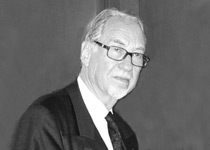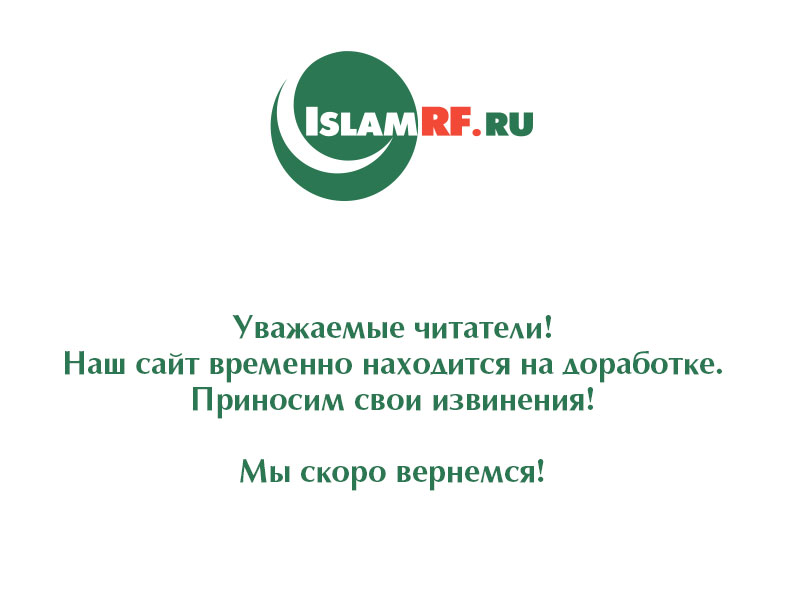We should long for harmony in relations with people of other religions
14.01.2009 10:17
An exclusive interview with former German Ambassador to Morocco and Algeria Dr. Murad Hofmann for «Medina al-Islam» newspaper.
N.V.: Dr. Hofmann, what do you think is the most timely and vital problem that European Muslims are facing these days?
M.H.: Muslims in Europe do not all face the same problems. This is due to the fact that each European State has its own past history of relations with Islam. Former great colonial powers, like Russia, Great Britain, France and Austria, have an old record of dealing with Muslims, and consequently more knowledge about Islam, than countries like Germany, the Netherlands and Scandinavia who encountered Muslims only recently. This being said, all Muslims in Europe equally suffer from a high amount of fear of Islam, mainly — but not only — by the events of 11 September. Fear reduces the readiness to integrate Muslims as Muslims and leads to more pressure for complete assimilation. In other words, in most European countries (with the exception of Austria and Spain) the Muslims still fight against discrimination and for their recognition with a status equal to the one enjoyed by the Churches.
N.V.: The recent cartoon scandal showed that Muslims are not going to put up with such insults. But the reaction on the part of Muslims was very different including violence and aggression. What reaction and what ways of expressing discontent do you find effective yet acceptable?
M.H.: If all Muslims could, and therefore, would react rationally to media insults, they would not make much fuss. Because by reacting massively the Muslims only insure that the media insults in question circulate globally. But Muslims are of course as emotional as human beings are bound to be. When violently reacting to blasphemy they remind the West of its own Christian past and learn to which extent the West has become irreligious. Here we see a clash not of civilizations but of value systems, and that is of some benefit — for both sides.
N.V.: What is your opinion on Jihad and what is your understanding of its goals? Do you think that this concept could be understood in various ways, I mean can jihad be informational, economical for example?
M.H.: According to its Arabic root jihad means no more than «to make an effort», «to strive» — fi-s-sabil Allah. Jihad in this most basic sense is exercised when human beings make an effort to improve themselves morally, to help others economically, and of course also militarily, whenever the Ummah is under outside attack, as in Palestine and Chechnya.
N.V.: Is assimilation and the loss of religious self-consciousness among the Muslim population is a common thing in European countries? Is it becoming a threat? What can we do to resist it?
M.H.: True believers, deeply devoted to their faith, are always a minority, and have always been such, not only in Islam but also in Christianity and Communism. Muslims immigration in the West offers both enormous chances and enormous risks. Among those risks figures the seductiveness of a materialistic consumerist society, as currently to be found in the US, Germany, Switzerland and Scandinavia. We are bound to lose many of our children to the glamour and decadence of permissive Western societies. But those who remain committed to Islam are an elite.
N.V.: What do European Muslims know about problems that Russian Ummah has to face now? In particular, are people in Europe aware of the fact that Russian Muslims are becoming disturbed by the increasing encroachment of the Russian Orthodox Church into all aspects of life, which is supported by the authorities? To be exact, they are now trying to introduce an institution of chaplains in the army and to teach the history of Russian orthodox church at secular schools.
M.H.: European Muslims are not aware that the revival of the Orthodox Church after Soviet atheism has its drawbacks for the Muslims in Russia. This message must be transported into Western media, if at all possible.
N.V.: What examples should Muslims who live among people practicing other religions and who are a minority in a certain area have in mind? Should they obey the laws of the country they’re living in if the state ignores their interests or even oppresses them?
M.H.: Muslims during most of their history have been extremely tolerant vis-à-vis the followers of other religions, as demanded by the Qur`an. This fact we should be proud of and use it as an argument when demanding religious protection on our side. Islamic law requires that we obey the local rule, as if we had concluded a written contract. But our loyalty must end where we would gravely violate the Shariah. In that case emigration would be the alternative. If the State merely ignores the Muslims`interests, they should double their efforts to be heard. Dr. Murad Hofmann —former German ambassador to Algeria (1987–1990) and Morocco (1990–1994), from 1961 to 1994 worked in NATO and OBSE.
N.V.: To what extent may Muslims proceed in defending their interests and rights in a non-Muslim state? Where is that line that they shouldn’t cross? What actions are preferable?
M.H.: The line not to be crossed are the five pillars of Islam plus certain restrictions (like pork and alcohol). As long as we are not forced to consume pork and alcohol, and not prevented from praying, fasting, and going on hajj, we should stay and seek redress via the court system (if functions) and through better mutual help among the Ummah. We cannot expect (and have not been predicted) to be loved.
N.V.: Do you think that there now is a necessity in an all-European organization that would take up the complaints of Muslim communities on various cases of oppression?
M.H.: The West European Muslims are already cooperating, with a view to bring their views to bear in the European Union. Their joint secretariat is located in Strasbourg. Alas, in all big European countries the Muslims so far have been unable to agree to a single Muslim umbrella organization for all of them. This deficiency is due to the ethnic, linguistic, and sectarian diversity of the Muslims populations in Europe. In Germany, for instance, there are four major Turkish Muslim organizations who oppose each other. Absurd but true.
N.V.: Muslims and Christians, Jews and representatives of other confessions and cultures have for centuries lived together in Russia. And our country thus has a very deep and broad experience of tolerant relations between representatives of different communities. Do you think that it makes possible the establishment of a special institution that would manage experience exchange between west-European and Russian Muslims?
M.H.: Whether additional institutions would be helpful, I doubt. But it could be enlightening indeed if the Russian Muslims could demonstrate the existing religious diversity by organizing a conference in which, with Western Muslim observers, the Russian Churches and Jews would cooperate side-by-side.
Interview by Natalya Vasilieva The interview was published in «Medina al-Islam» newspaper (issue 19, June 2006)






 RSS
RSS



